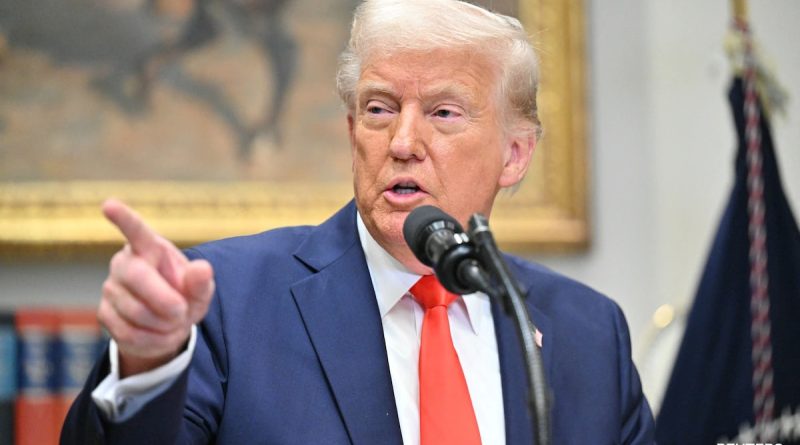Donald Trump Postpones Imposition of Tariffs on Canada and Mexico Following Market Backlash
US President Donald Trump Delays Tariffs on Canada and Mexico
In a surprising turn of events, US President Donald Trump decided to delay some tariffs targeting Canada and Mexico. This move comes after a wave of backlash from financial markets and concerns about the impact of blanket levies on the US economy.
Relief for Companies and Consumers
The delay in tariffs offers much-needed relief to companies and consumers who were bracing for the impact of higher tariffs on Canadian and Mexican imports. Stock markets reacted negatively to Trump’s initial duties of up to 25 percent, prompting fears of slower US growth and increased inflation.
Automakers Benefit from the Tariff Delay
The temporary halt in tariffs will last until April 2 and specifically targets imports covered by the North American trade agreement. This move is particularly beneficial for automakers, as the auto sector heavily relies on cross-border trade within North America.
Negotiations with “Big Three” Automakers
After discussions with major US automakers such as Stellantis, Ford, and General Motors, Washington initially announced a one-month exemption for autos coming through the United States-Mexico-Canada Agreement (USMCA). This exemption will help ease the burden on the auto industry and prevent disruptions in production.
Future Tariff Plans
Despite the tariff delay, Trump hinted that more tariffs could be on the horizon. He mentioned that reciprocal tariffs will be implemented on April 2, with a focus on addressing unfair trade practices. This means that Canadian and Mexican goods could still face levies in the near future.
Ongoing Trade Tensions
While Trump’s decision to delay tariffs brought temporary relief, trade tensions with Canada and Mexico continue to simmer. Canadian Finance Minister Dominic LeBlanc announced that his country will hold off on imposing tariffs on US products until April 2, as both countries work towards resolving trade disputes.
Economic Implications
The easing of tariffs by Trump reflects a recognition of economic realities, according to Scott Lincicome of the Cato Institute. Tariffs disrupt supply chains, burden American consumers, and create uncertainty in the market. This move signals a shift in Trump’s approach to trade policy.
Looking Ahead
As the US government grapples with trade deficits and economic challenges, the impact of tariffs on the economy remains a contentious issue. While some believe that tariffs are necessary to address trade imbalances, others argue that they could have negative repercussions on businesses and consumers.
In conclusion, Trump’s decision to delay tariffs on Canada and Mexico offers a temporary reprieve for companies and consumers. However, ongoing trade tensions and the uncertain future of tariffs continue to pose challenges for the US economy. It remains to be seen how these developments will impact trade relations between the US, Canada, and Mexico in the long run.

